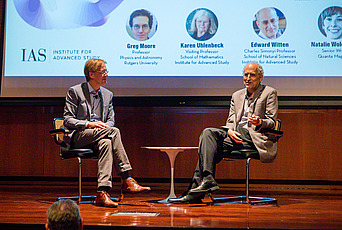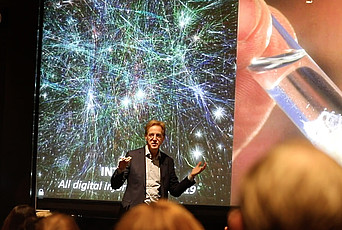
Contemplating the End of Physics
By Robbert Dijkgraaf, Director and Leon Levy Professor:
"Is physics finished? The 21st century is often called the age of biology. Or artificial intelligence. Or any other emerging field. This relegates physics to the previous century — the golden days when the revolutions of relativity and quantum mechanics shook the world, and the discoveries of elementary particles led to a string of Nobel Prizes. Nowadays, people worry about a “desert scenario,” where no new particles will be found for many decades to come, if ever.
I believe this point of view is wrong, in at least three distinct ways. First of all, for a subject supposedly past its prime, the first two decades of this century have been pretty successful for physics. We saw the discovery of the Higgs particle in 2012, the detection of gravitational waves in 2015 (announced in 2016) and the first image of a black hole’s event horizon in 2019. All three were rare instances of scientific mega-events that landed on the front pages of newspapers and captured the imagination of the world.
But, one could argue, the seeds that led to these discoveries were all planted in the good old days. Black holes and gravitational waves are direct consequences of the equations Albert Einstein discovered in 1915. Maybe physics has run out of original ideas?"
Read more at Quanta.


